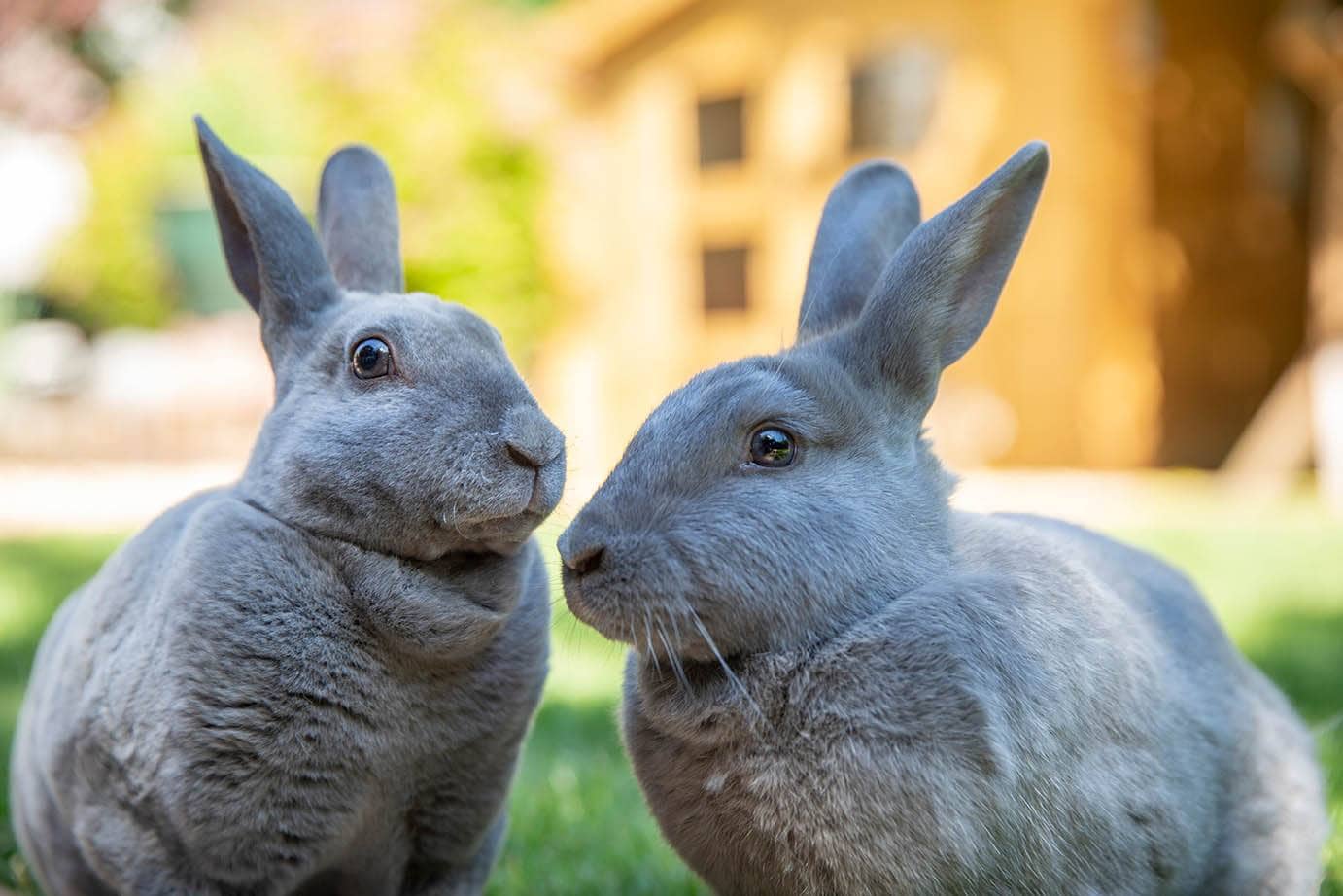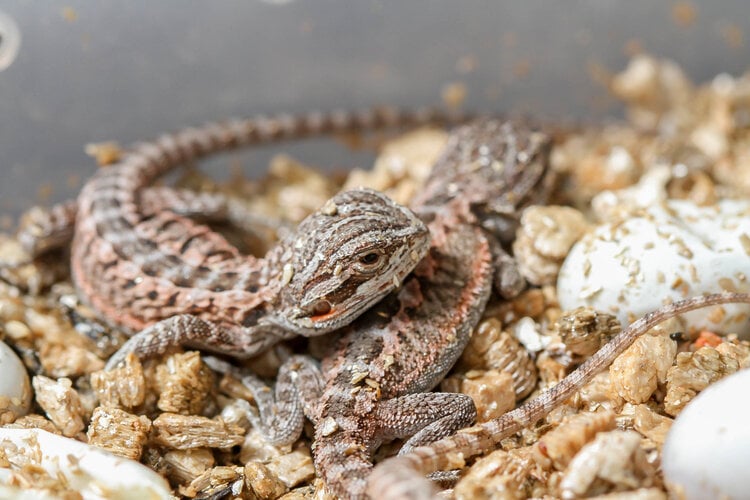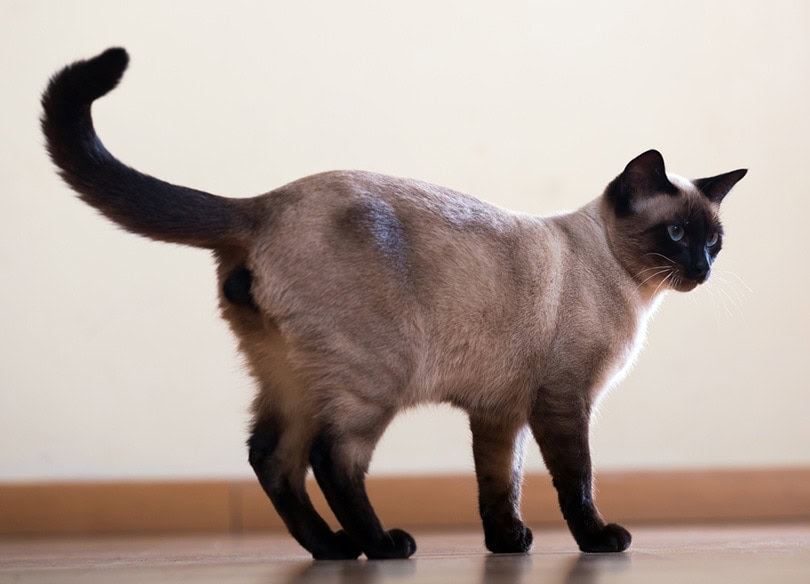VET APPROVED

The information is current and up-to-date in accordance with the latest veterinarian research.
Learn more »Click to Skip Ahead
Besides being cute, rabbits breed very fast thanks to their short 31-33 day gestation period. Interestingly, a female bunny can produce between four to seven babies at a time, on average. These numbers can sometimes be as high as 14 kits in a litter. Despite rabbits’ ability to multiply rapidly, Mother Nature dooms the population of rabbits with predators’ help.
Because a rabbit’s primary defense is to run and hide as quickly as possible, it makes them vulnerable to large, more robust, and faster predators. What are examples of these predators? Keep reading to find out.

Which Types of Animals Attack Rabbits?
1. Foxes
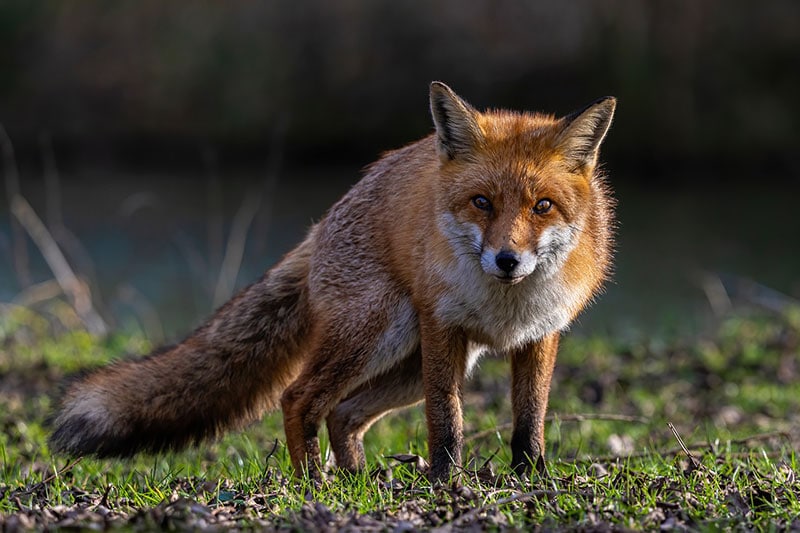
Foxes would love to find nothing more than a tasty rabbit for their meal. Although foxes don’t need bunnies for their survival, rabbits are among their major food sources and can make a significant and primary part of their meal if available.
2. Wolves

Wolves are among rabbit’s greatest threats, mainly because they eat them for pleasure. Wolves are carnivorous and primarily prefer large and small ungulates. However, they eat rabbits to supplement their primary food sources and only eat bunnies as their staple food during food shortages.
3. Dingoes
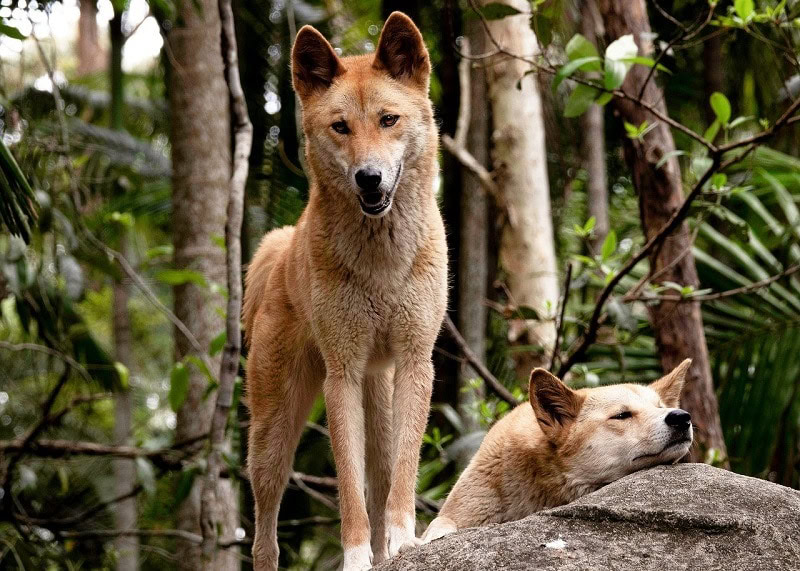
Dingoes are more like wild dogs that mainly thrive in grasslands, the woods, and rocky terrains-places where rabbits also reside. They eat rabbits as their primary food source, mainly because they can find them in abundance.
4. Wolverines
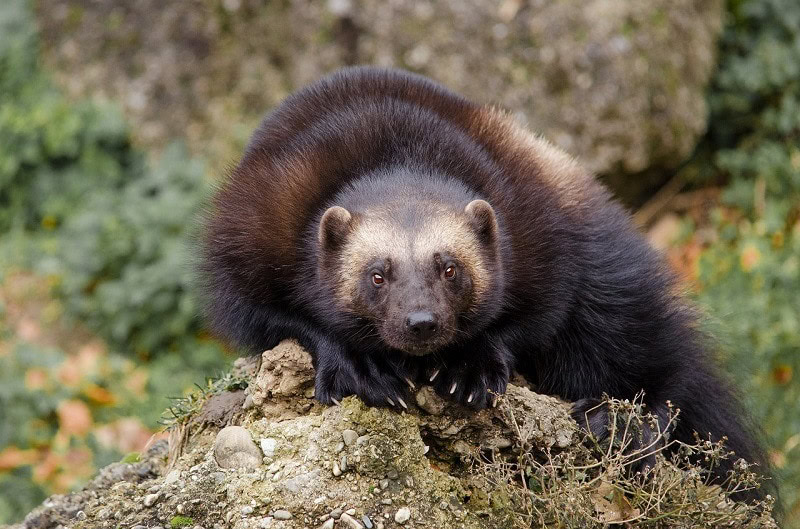
Wolverines are omnivorous mammals that look like small bears, but actually belong to the weasel family. They usually eat almost anything, including rabbits. These mammals are known to dig into burrows of hibernating animals and eat them during winter when there’s a food shortage. Therefore, rabbits can be a wolverine’s significant source of food if they have fewer food options.
5. Coyotes
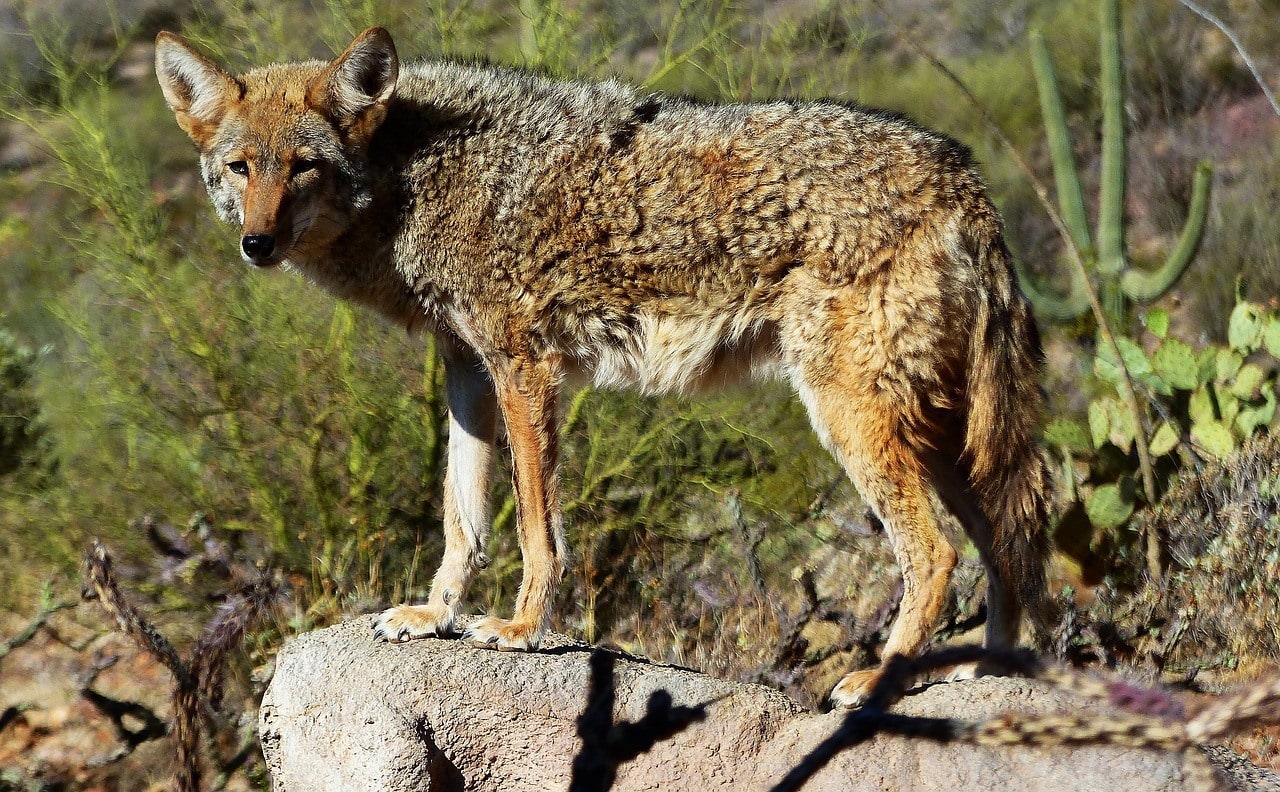
Coyotes are not so picky with food because they are both scavengers and hunters. They can also eat vegetables because they are omnivorous. However, a coyote’s favorite meal would be a tasty small mammal like a rabbit, rat, mote, or vole.
6. Raccoons
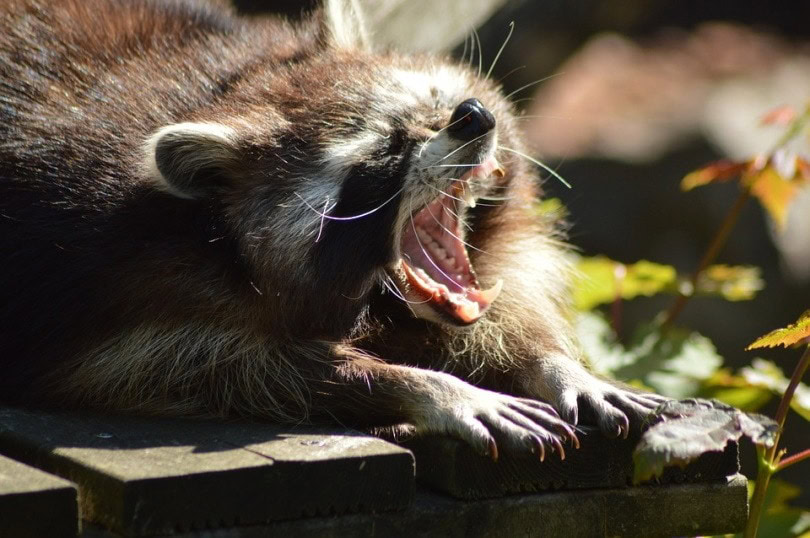
Raccoons are omnivorous and can eat veggies and animals such as rabbits if they can catch them. However, bunnies don’t make the most of a raccoon’s diet because raccoons are slow and prefer hunting other slow-moving creatures.
7. Bears
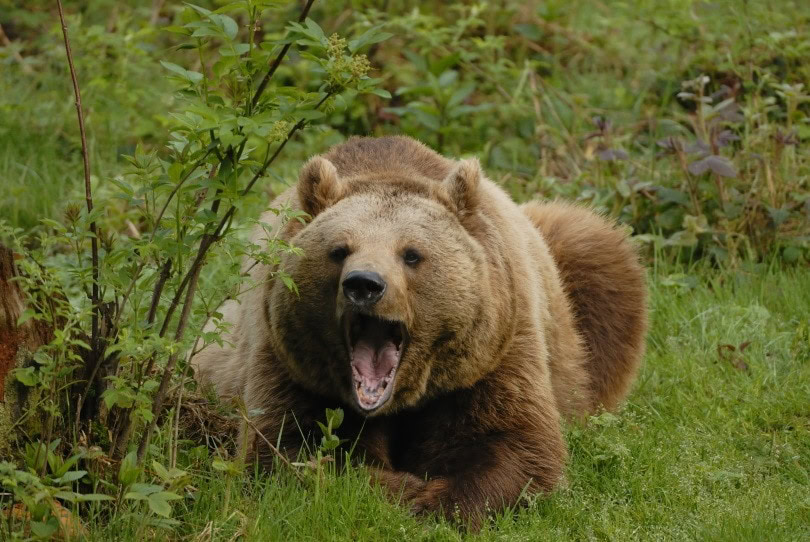
A bear’s diet ranges from honey to ants, rabbits, and deer. Bears feed depending on the season and availability and can eat fruit if meat is unavailable. However, they prefer meat more and can eat rabbits when easily available.
8. Birds of Prey
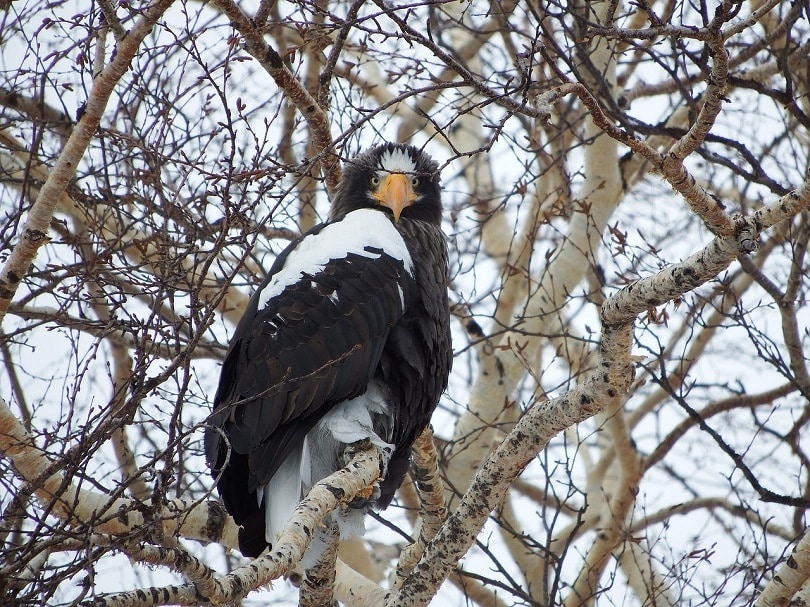
Although birds of prey may not be much of a problem in urban areas, they can attack and eat rabbits, especially if they are in free range.
Birds such as eagles, hawks, falcons, owls, and crows are always on the lookout for small mammals like rabbits, squirrels, and mice to snatch away and eat.
9. Snakes
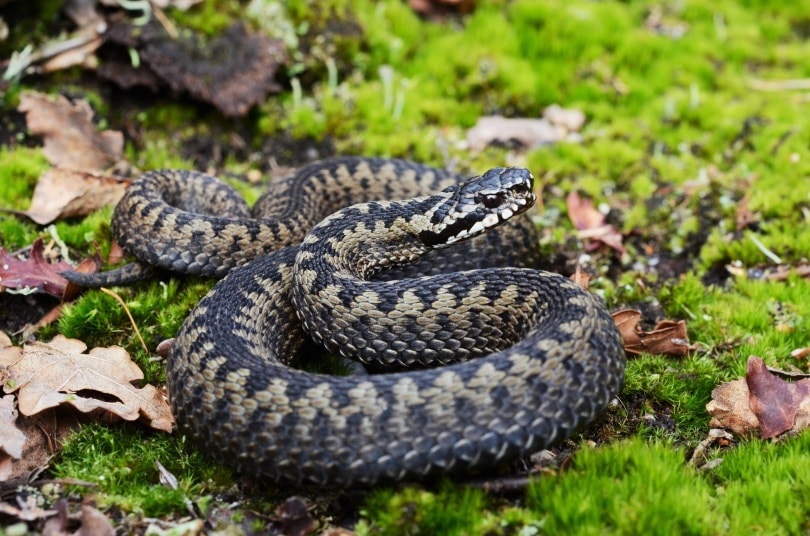
Snakes can eat pretty much anything that moves, depending on their sizes. Medium-sized snakes like cobras, mambas, and vipers can eat smaller-sized rabbits, while large snakes like anacondas, pythons, and boas can quickly engulf larger rabbits as a whole.
10. Dogs
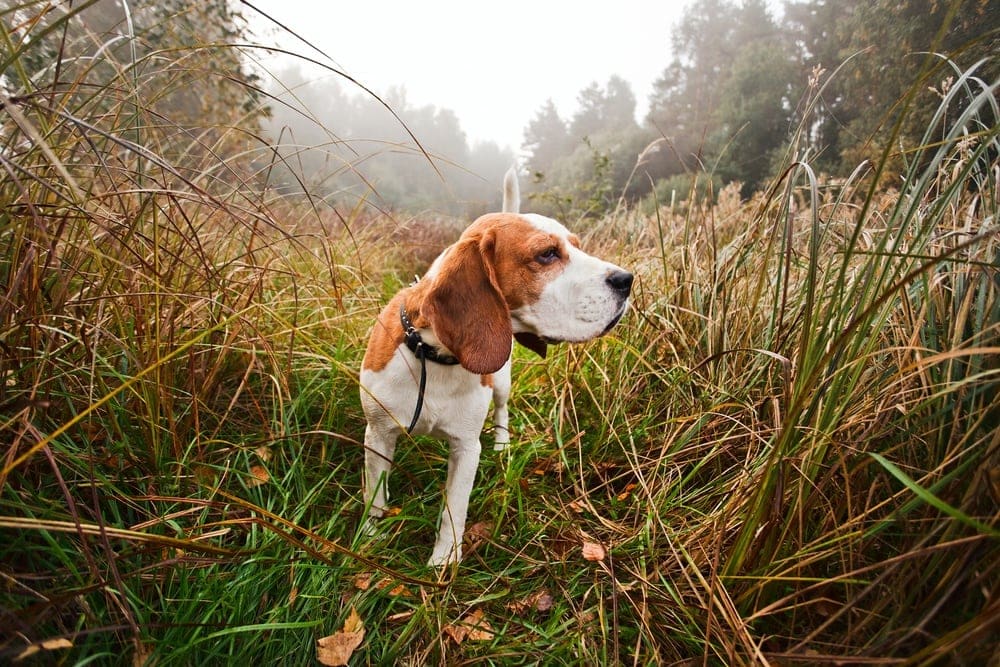
Domesticated dogs can attack and eat a bunny at any time, depending on their nature and upbringing. Some dog breeds were developed specifically to chase and hunt animals like rabbits. They include Jack Russel Terriers, Beagles, Basset Hounds, Redbone Coonhounds, Fox Terriers, and Weimaraners.
11. Big Cats
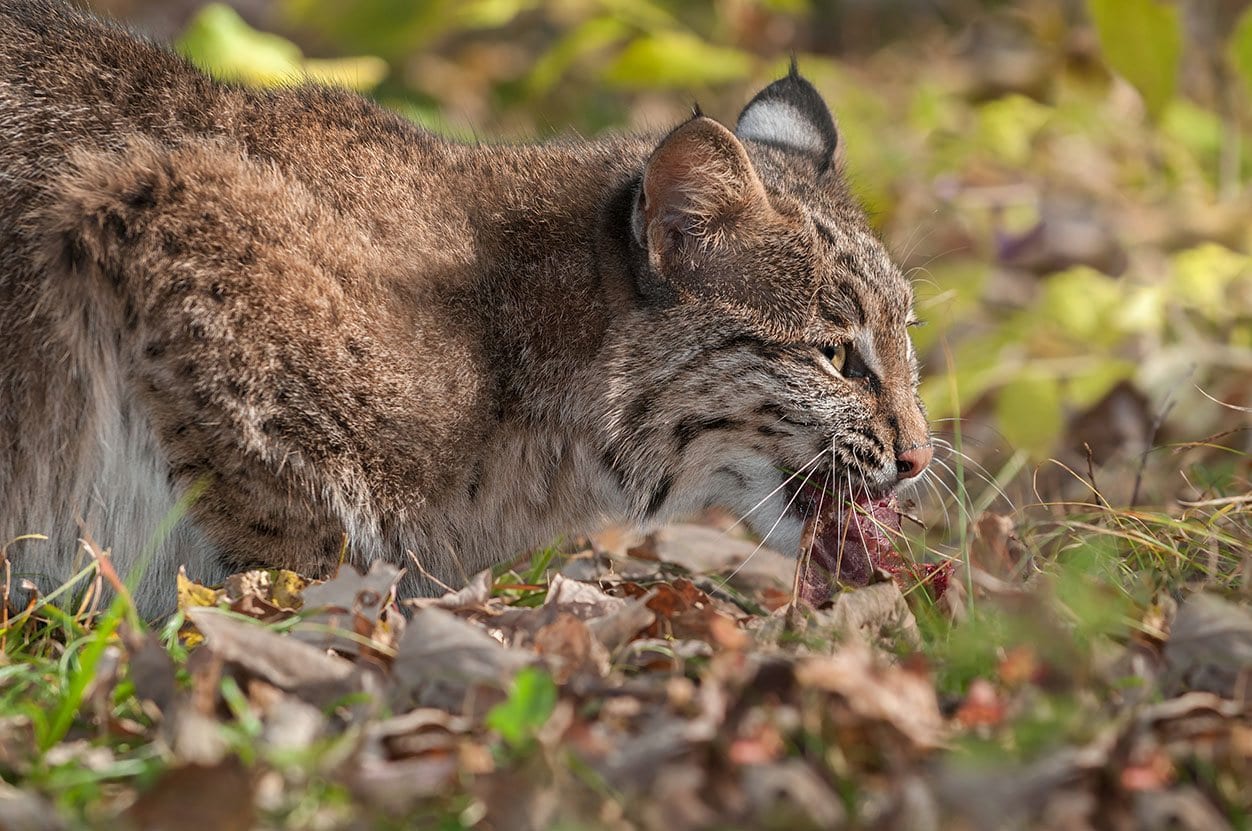
Big cats such as leopards, bobcats, and cougars are mainly carnivorous and pose a threat to any prey, including rabbits. These animals do not usually need rabbits for survival and may kill and eat bunnies after eating other game meat.
12. Cats
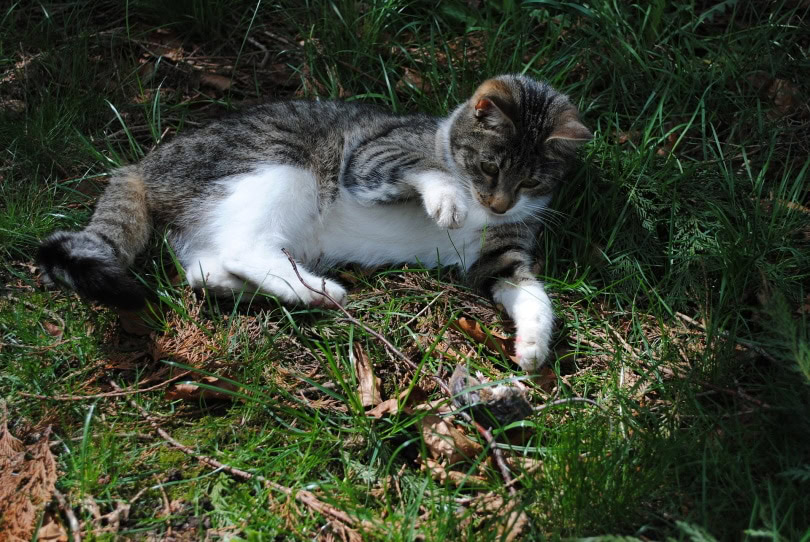
Domesticated cats also have predatory instincts and can kill and eat a small rabbit. While bunnies can defend themselves to some extent (by running or kicking), they can’t survive catfights from large kitties.
Young and small rabbit breeds are most at risk because of their tempting “mouse-like” appearance.
13. Lizards
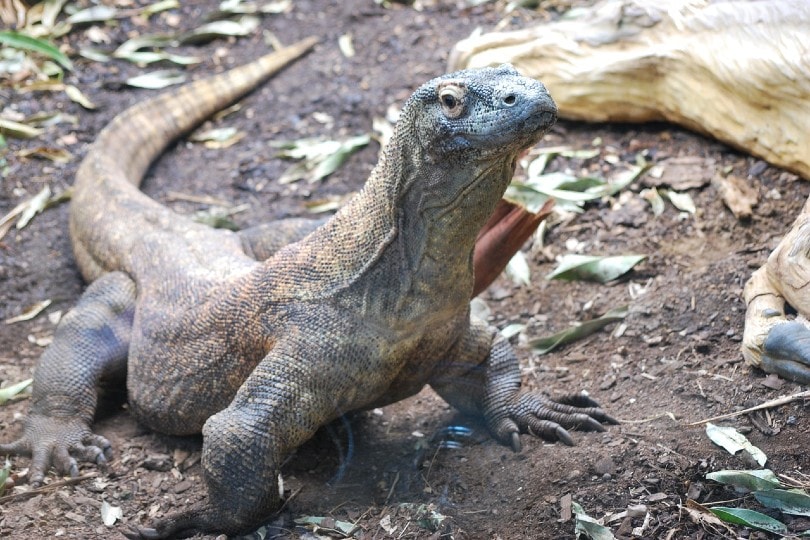
A lizard’s diet mainly depends on its size, and large lizards like Komodo dragons eat animals of various sizes, from toads and rabbits to deer.
Some medium-sized lizards, such as the monitor lizard, also eat animals like rabbits as their primary food source.
14. Ferrets
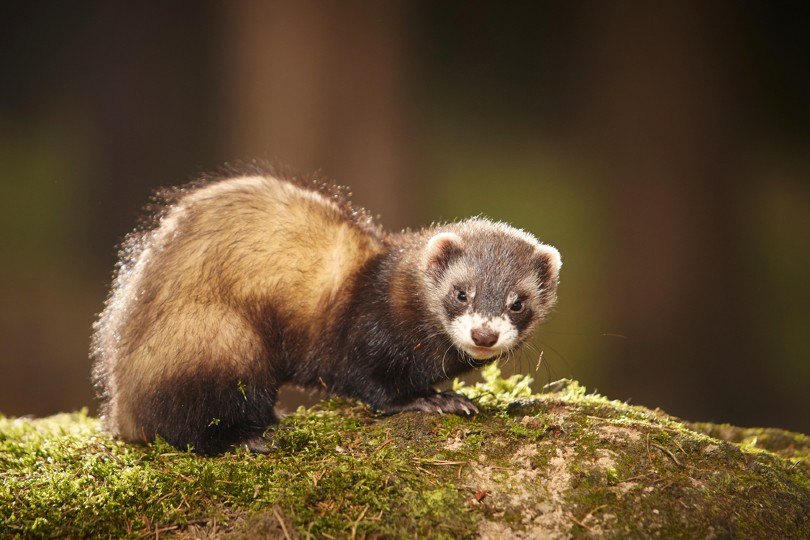
Ferrets are small mammals that are obligate carnivores. They are also crepuscular, with a pretty good night vision, which puts them in the rabbit’s way. This means that ferrets may go for rabbits, but other small mammals like mice and rats are usually their primary source of food.
Their high metabolism and small intestines allow them to eat every part of an animal, including bones.
15. Weasels
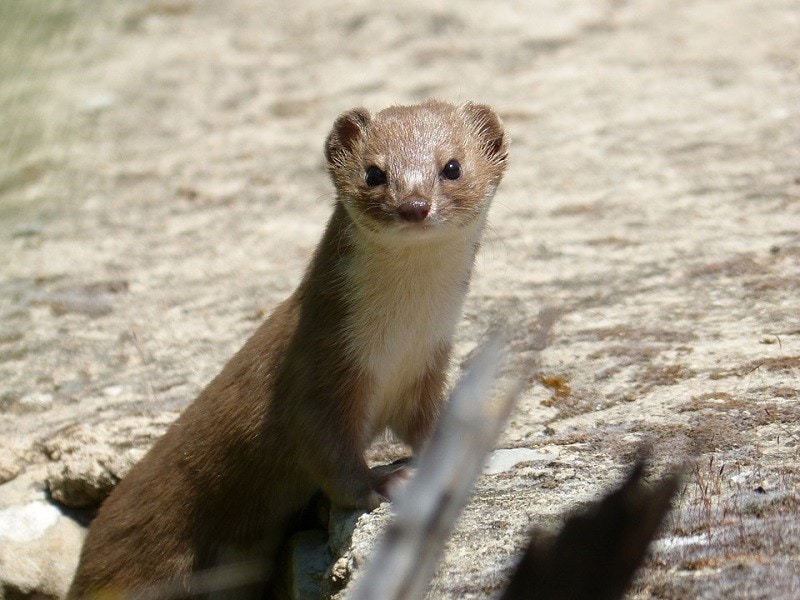
Despite their small sizes, weasels are strong and thrive as solitary hunters, making it easy for them to eat rabbits of similar size. They also have a high metabolic rate, a big appetite, and attack their prey by biting the neck region.
16. Badgers
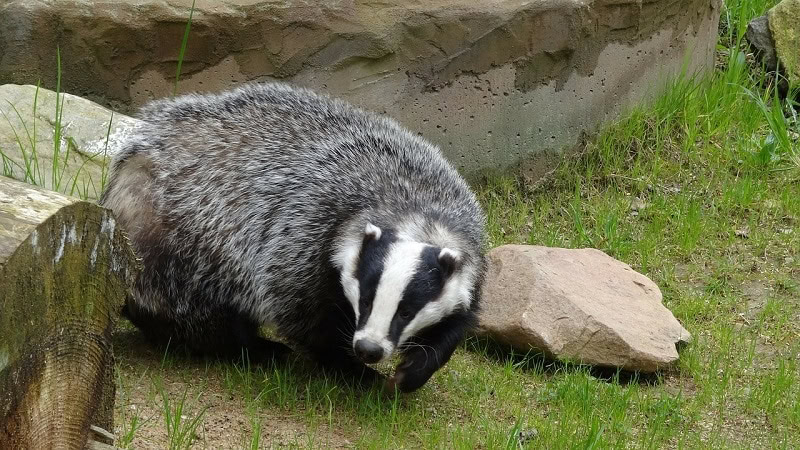
Most of a badger’s meal consists of insects and worms. However, they can also hunt and eat small mammals like bunnies and rodents like rats.
17. Stoats
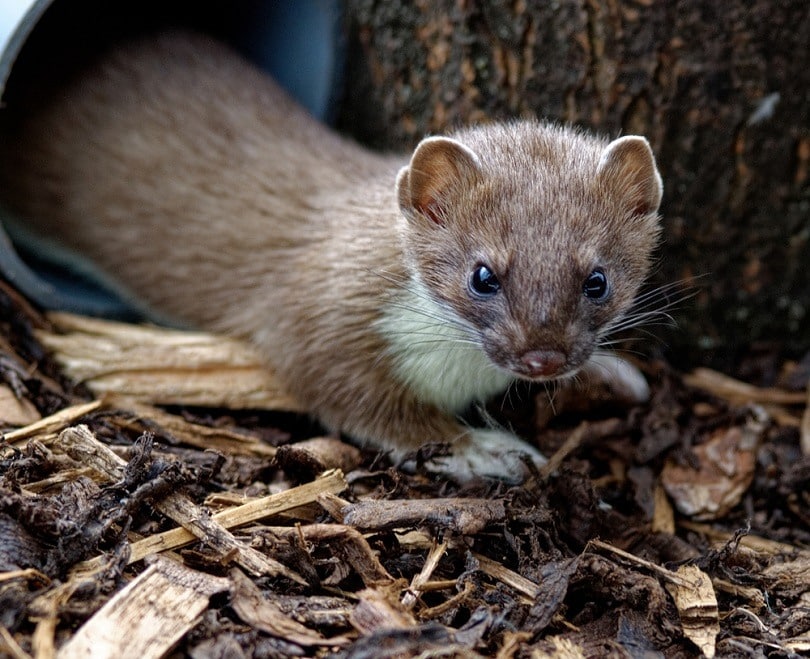
Stoats also prey on rabbits by tricking them. They are solitary hunters and use various hunting techniques, combined with speed and agility, to get their prey.
18. Humans

Of course, humans pose a great threat to rabbits. Humans hunt rabbits in the wilderness for meat and have been doing so for ages.
Due to the demand for rabbit meat, rabbit farms worldwide are raising rabbits to fulfill the need. Humans not only hunt rabbits for their meat but also their coats.

What Animals Would Kill a Rabbit But Not Necessarily Eat It?
1. Possums
Possums may attack and kill a rabbit, but may not always eat it. They eat dead animal carcasses after other predators have already killed and eaten most of them.
These animals may attack and harm a bunny if they feel threatened.
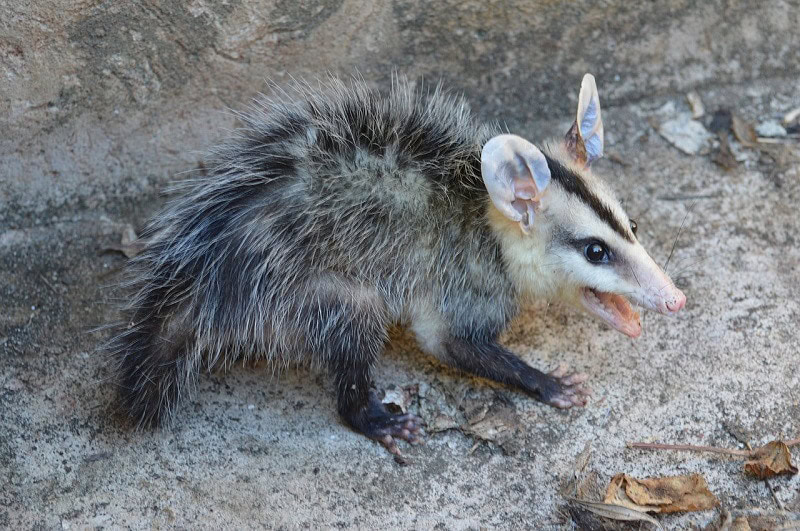
2. Raccoons
Raccoons are omnivorous and opportunistic animals that eat plants and also scavenge for easy or dead prey. They may kill a rabbit and leave it, depending on many factors, such as the presence of other predators and the availability of food.
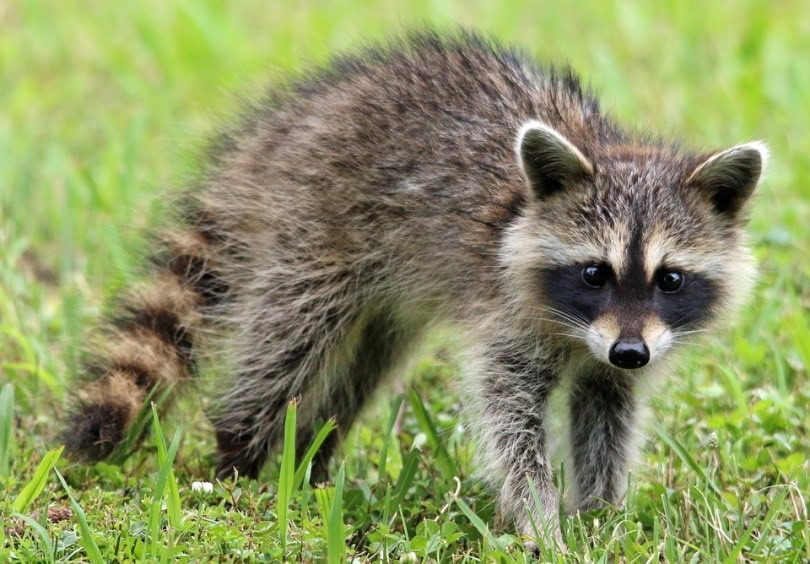
3. Housecats
Housecats are predatory species that may hunt and kill rabbits without eating them, as they often hunt for sport, rather than due to a genuine hunger. However, housecats shouldn’t eat bunnies as these animals may harbor pathogens such as Tularemia and Toxoplasma that could cause illness or pose a risk to humans.
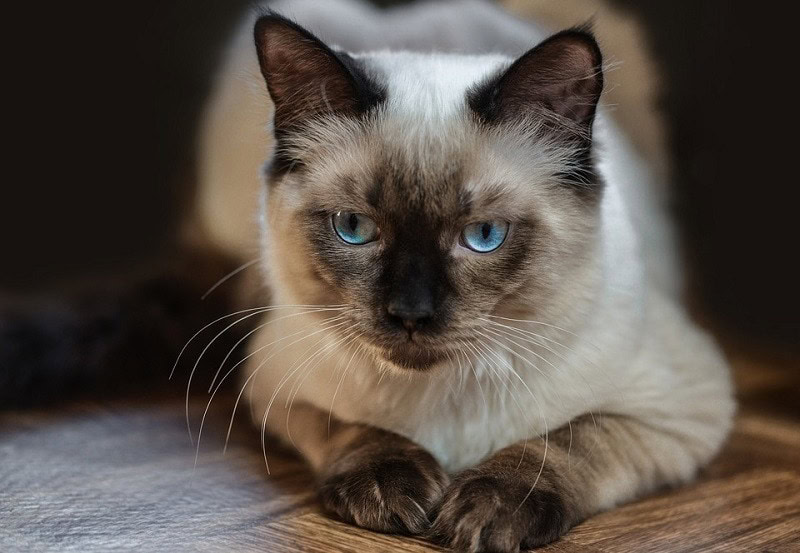

How to Protect Your Rabbits From Predators
Keep Your Rabbits Indoors
The best way to keep your bunnies out of a predator’s reach is by keeping them indoors. The good thing is domesticated rabbits can do just fine living in your house, as long as they have access to food, playing with toys, and enough space to run, jump, burrow and play.
Housing your bunnies shouldn’t be inconvenienced because you can potty-train and rabbit-proof a room to prevent them from getting into trouble.
Predator-Proof Your Rabbit’s Hutch
Since you’ll not always be around to protect your bunnies every time, buying a rugged rabbit cage or hutch isn’t enough. Plus, if you plan on keeping your bunnies outdoors, the hutches from the stores may not be sturdy enough or suitable for the outside.
It’ll be best to construct the shelter yourself and predator-proof it by strengthening the wires to prevent stronger predators from easily destroying the cage.
Also, reinforce the locks and make them sturdier. Some predators can be smart enough to discover that they can unlock to gain access.
You can also place the shelter on an impenetrable or concrete floor to prevent the predators from digging and sneaking underneath. Better still, reinforce the surface with wood to make the hutch impenetrable. Besides keeping them safe from predators, it’s important that the hutch provide your rabbit with shelter from all the adverse environmental events, ensuring consistent shade in the summer and comfortable warmth during the colder months.
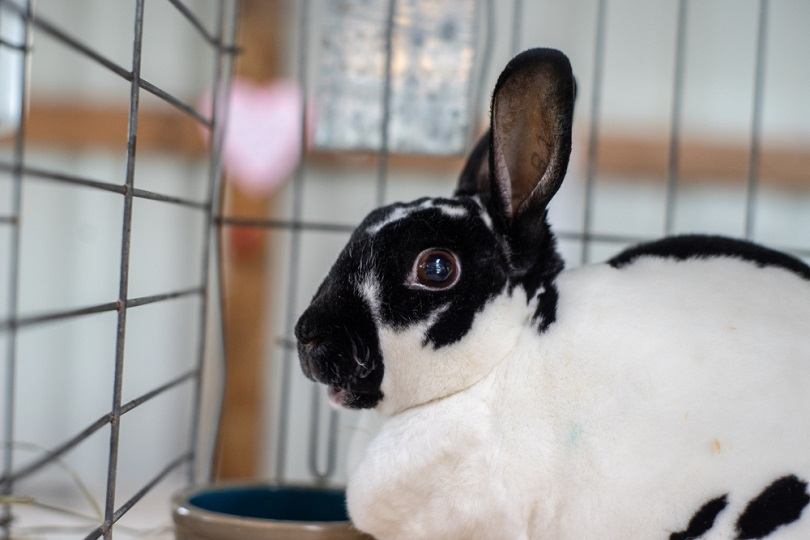
Make Your Yard Predator-Unfriendly
Putting all the other measures in place may not be enough if the predators can still hover around your yard. Unfortunately, a bunny can die from shock by seeing the predator, even if they’re already safe in a hutch.
Therefore, make your yard inhabitable for predators by keeping it clean, avoiding scrap foods, and getting rid of standing water to deny predators access to food and water.
Better still, bar crepuscular and nocturnal creatures like ferrets and foxes by installing motion-sensing lights around the yard.
Supervise
Supervise your rabbits during their playtime or if you plan to free-range them. Predators like birds of prey and foxes are usually afraid of people and may not approach your bunnies if you are around. Even if your outdoor enclosure is fully fenced, it’s always a good idea to regularly check on your rabbits.

Summary
If you are considering keeping rabbits, you’ll need to take some measures to protect your bunny from predators. You can avoid free-ranging and provide secure shelters such as hutches for your rabbits.
Ensure that the rabbit’s shelter is out of a predator’s reach. Unfortunately, bunnies can freeze and die from shock just by coming into contact with a predator!
Next on your reading list:
Featured Image Credit: SeraphP, Shutterstock
